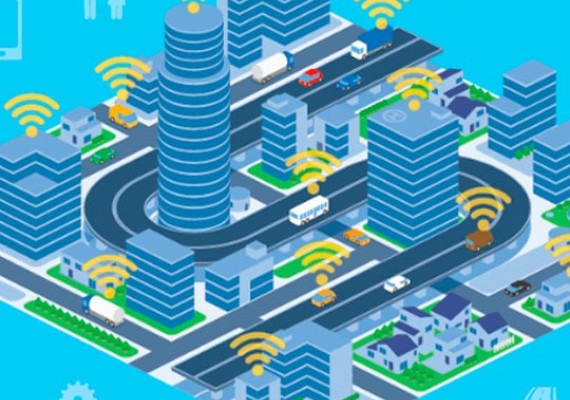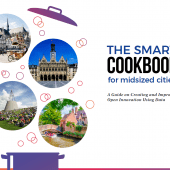SCIFI

Smart Cities Innovation Framework Implementation
Priority Axis
Technological and Social InnovationSpecific objective
Framework Conditions for Innovation
Lead partner
Stad MechelenContact
Start Date
01/07/2017End Date
31/12/2021Project budget
3 165 501 €ERDF amount
1 899 301 €ERDF rate
60%About
Common challenge
The European market for public sector open data reached 22.1 billion Euros in 2015, and Regional Smart Specialisation Strategies emphasized the importance of smart innovation. The private sector possesses data-based technologies capable of alleviating traffic congestion, such as directing cars to available parking spaces. Cities in the 2 Seas area sought similar solutions for their congested centres. Despite the availability of innovative technologies, the 2 Seas innovation sector faced common public sector challenges hindering the realization of this potential value for businesses, leading to a region-wide brain drain. The primary market failure within 2 Seas cities revolved around opening up datasets and implementing innovative procurement practices. SCIFI partners, including four cities, two international open data experts, and two business networks, identified tis challenge and the consequent necessity for transnational framework conditions. These conditions were aimed at establishing a cross-border market that consolidates the fragmented resources of cities and taps into the smart innovation potential of businesses. The overarching goal was to enhance cities' capacity to activate dormant demand for smart public services.
Overall objective
Main outputs
Cross border approach
Main Achievements
SCIFI project came to an end in December 2021. In the first cycle of the accelerator programme that started in 2018, Mechelen (BE), Bruges (BE), Delft (NL) and Saint-Quentin (FR) defined their urban challenges and selected solution providers to drive the 8 pilots in 2019. Cities were supported by knowledge partners in one of the most difficult steps: signing a contract that fits the ambition for replicable, cross-border documents and tools and by the University of Southampton for open data innovation.
For 6 months, prototypes were developed, and the solution providers delivered training and modules, supervised by experienced partner Faubourg Numérique. In the meantime, additional urban challenges for the second accelerator programme were defined. In Summer 2019 most pilots were finalised and presented at local support groups and smart city events throughout Europe, coordinated by Cambridge CleanTech. A similar process took place for the second accelerator programme, and in January 2020, 7 pilots were launched. SCIFI partners managed to continue the project successfully by extending the pilots and increasing the visibility of the project by presenting and representing SCIFI at events and conferences. Documenting the learnings (e.g. update of guidance documents) was also carried out. All of these learnings have now been bundled in the magnum opus of the project: The Smart Cookbook for Midsized Cities. In this cookbook, we have described every step it takes for a midsized city to become smart, with many concrete examples and tips from the project. This cookbook has been spread online as well as in a physical form in live events. These learnings will also be sustained through the continued cooperation between partners, as well as involvement in European Digital Innovation Hubs and other smart city initiatives.
The SCIFI partnership also organised their final event, where they highlighted the cookbook, went in depth into a couple of important themes of the project, showcased some of the pilots and held a matchmaking segment where interested parties could ask more questions and have discussions regarding SCIFI with the partners. Finally, the cross-border cooperation is showing its fruits with the procurement of six solutions from SCIFI pilots and implementation in cities involved in the project and beyond.
Testimonial

All of these learnings have now been bundled in the magnum opus of the project: The Smart Cookbook for Midsized Cities. In this cookbook, we have described every step it takes for a midsized city to become smart, with many concrete examples and tips from the project.
